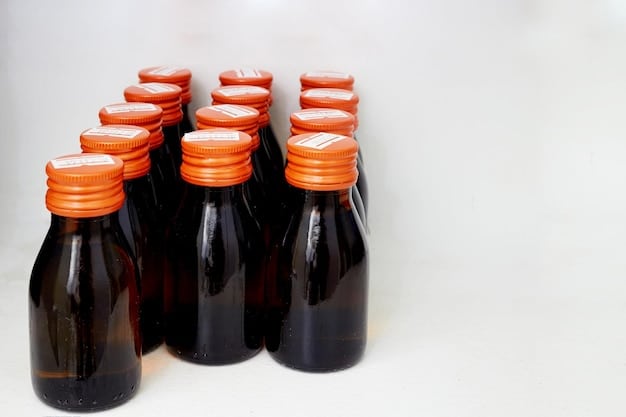The 5 Best Muscle-Building Supplements for Men in 2025

The best muscle-building supplements for men in 2025 include creatine, protein powder, and BCAAs, while supplements like SARMs and unproven testosterone boosters should be avoided due to potential health risks.
Looking to maximize your muscle growth in 2025? Navigating the world of supplements can feel overwhelming. This guide cuts through the noise to reveal the 5 best muscle-building supplements for men in 2025 (and 3 to avoid), helping you make informed choices for your fitness journey.
Top 5 Muscle-Building Supplements for Men in 2025
Building muscle effectively requires more than just hitting the gym. It also involves proper nutrition and, for some, the strategic use of supplements. Here’s a breakdown of the top 5 supplements to consider in 2025 for optimal muscle growth and recovery.
Creatine: The Performance Enhancer
Creatine is one of the most researched and effective supplements for increasing muscle mass and strength. It works by increasing the availability of ATP (adenosine triphosphate), which is the primary energy source for muscle contractions.
Here’s why creatine remains a top choice:
- Supports muscle growth and strength gains.
- Enhances power output during high-intensity exercise.
- Improves muscle recovery after workouts.
Whey Protein: The Building Block
Protein is essential for muscle repair and growth. Whey protein is a fast-digesting protein source that provides the amino acids your muscles need after a workout. There are several types of whey protein, including concentrate, isolate, and hydrolysate, each with varying levels of protein and fat.
- Provides essential amino acids for muscle repair and growth.
- Supports muscle protein synthesis.
- Convenient and easy to consume post-workout.

BCAAs: The Recovery Aid
Branched-chain amino acids (BCAAs) are a group of three essential amino acids: leucine, isoleucine, and valine. They play a crucial role in muscle protein synthesis and can help reduce muscle soreness after intense exercise.
- Reduces muscle soreness and fatigue.
- Supports muscle protein synthesis.
- Can be taken before, during, or after workouts.
Beta-Alanine: The Endurance Booster
Beta-alanine is a non-essential amino acid that increases levels of carnosine in the muscles. Carnosine helps buffer lactic acid, reducing muscle fatigue and improving endurance during high-intensity exercise.
- Enhances muscular endurance.
- Reduces muscle fatigue during intense workouts.
- Supports increased training volume.
L-Carnitine: The Fat Transporter
L-carnitine is an amino acid that helps transport fatty acids into the mitochondria, where they can be burned for energy. While not a direct muscle builder, L-carnitine can support muscle growth by improving energy levels and reducing muscle damage.
- Supports fat metabolism.
- Reduces muscle damage.
- Improves energy levels.
Choosing the right supplements can significantly enhance your muscle-building efforts. Creatine, whey protein, BCAAs, beta-alanine, and L-carnitine are all excellent choices for men looking to maximize their results in 2025.
Supplements to Avoid: Risks and Misconceptions
While many supplements promise significant muscle gains, some come with potential risks and side effects. It’s crucial to be aware of these and make informed decisions about what you put into your body. Here are three supplements men should generally avoid.
SARMs: The Risky Alternative
Selective androgen receptor modulators (SARMs) are synthetic drugs that mimic the effects of testosterone. They are often marketed as a safer alternative to anabolic steroids, but they can still cause significant side effects, including liver damage, hormonal imbalances, and cardiovascular issues.
Why you should avoid SARMs:
- Potential for liver damage and other health risks.
- Can cause hormonal imbalances.
- Often unregulated and may contain unknown ingredients.
Unproven Testosterone Boosters: The Hype
Many supplements claim to boost testosterone levels, promising increased muscle mass, energy, and libido. However, many of these products lack scientific evidence and may not deliver the promised results. Furthermore, some can interfere with your body’s natural hormone production.
- Lack scientific evidence of effectiveness.
- May contain harmful or ineffective ingredients.
- Can interfere with natural hormone production.
Fake Products: The Danger of Counterfeits
The supplement industry is rife with counterfeit products that may contain harmful ingredients or be completely ineffective. It’s essential to purchase supplements from reputable brands and retailers to avoid these risks. Always check for third-party certifications.

- May contain harmful or dangerous ingredients.
- Could be completely ineffective.
- Presents a significant health risk.
Steering clear of risky supplements like SARMs, unproven testosterone boosters, and counterfeit products is essential for protecting your health and ensuring you achieve your fitness goals safely. Always prioritize research and consult with healthcare professionals before trying new supplements.
Understanding Supplement Labels and Certifications
Navigating supplement labels can be tricky, but understanding what to look for can help you make informed choices. Here’s a guide to understanding supplement labels and the importance of certifications.
Key Information on Supplement Labels
Supplement labels are required to list specific information, including:
- Serving size: How much of the product you should take at once.
- Ingredients: A complete list of all ingredients in the supplement.
- Nutrient content: The amount of each nutrient in a serving.
- Manufacturer information: The name and contact information of the manufacturer.
Decoding Ingredient Lists
When reviewing the ingredient list, pay attention to the following:
- Proprietary blends: Be cautious of blends that don’t list the exact amount of each ingredient.
- Artificial additives: Look for supplements with minimal artificial colors, flavors, and sweeteners.
- Allergens: Check for common allergens like gluten, soy, and dairy.
The Importance of Third-Party Certifications
Third-party certifications indicate that a supplement has been tested by an independent organization for purity, potency, and safety. Look for certifications like:
- NSF International: Tests supplements for contaminants and verifies label claims.
- Informed-Sport: Certifies that supplements are free of banned substances.
- USP Verified: Ensures that supplements meet quality standards for ingredients and manufacturing processes.
By understanding supplement labels and looking for third-party certifications, you can ensure that you’re choosing safe and effective products. Transparency and verification are essential for making informed decisions about your health.
Integrating Supplements into Your Fitness Routine
Supplements are most effective when combined with a well-rounded fitness routine and a balanced diet. Here’s how to integrate supplements into your workout and nutrition plan effectively.
Timing Your Supplement Intake
The timing of your supplement intake can significantly impact their effectiveness. Here are some general guidelines:
- Creatine: Can be taken any time of day, but some prefer to take it post-workout.
- Whey protein: Best taken immediately after a workout to support muscle recovery.
- BCAAs: Can be taken before, during, or after workouts to reduce muscle soreness.
- Beta-alanine: Take it consistently throughout the day to maintain elevated carnosine levels.
- L-carnitine: Take it with a meal to enhance fat metabolism.
Synergistic Supplement Combinations
Certain supplements work well together to enhance their effects. Some beneficial combinations include:
- Creatine and beta-alanine: Enhance power output and endurance.
- Whey protein and BCAAs: Support muscle protein synthesis and recovery.
- L-carnitine and caffeine: Improve fat metabolism and energy levels.
The Role of Diet and Exercise
Supplements are not a substitute for a healthy diet and regular exercise. Focus on consuming a balanced diet rich in protein, carbohydrates, and healthy fats, and engage in regular strength training and cardiovascular exercise.
Integrating supplements strategically into your fitness routine can help you maximize your results. Always prioritize proper nutrition, exercise, and rest for optimal muscle growth and overall health.
Setting Realistic Expectations for Supplement Use
It’s crucial to have realistic expectations when using supplements. They are not magic pills and won’t produce results overnight. Here’s how to set realistic expectations for your fitness journey.
Understanding the Limitations of Supplements
Supplements can enhance your efforts, but they won’t do the work for you. They are most effective when combined with a well-structured workout plan, a balanced diet, and adequate rest.
- Supplements enhance, but don’t replace, hard work.
- Results take time and consistency.
- Individual results may vary.
| Key Point | Brief Description |
|---|---|
| 💪 Creatine | Enhances strength and muscle growth with ATP. |
| 🥛 Whey Protein | Provides essential amino acids for muscle repair. |
| 💊 SARMs | Avoid due to potential health risks like liver damage. |
| 🧪 Unproven Testosterone Boosters | Often lack evidence and can interfere with hormones. |
Frequently Asked Questions
▼
Creatine can be taken at any time of the day. Some people prefer taking it post-workout to help with muscle recovery, while others take it in the morning or before their workout.
▼
▼
No, SARMs are not a safe alternative to steroids. They can have significant side effects and pose serious health risks, including liver damage and hormonal imbalances.
▼
A general recommendation is to take 20-40 grams of whey protein after a workout. You can adjust this based on your body weight and protein needs.
▼
Yes, it’s possible to get enough protein from your diet alone. But for athletes, whey protein provides a quick, convenient boost, especially after intense exercise.
▼
Many testosterone boosters lack scientific evidence of effectiveness and may not deliver the promised results. Focus on proven muscle-building supplements like creatine and whey protein first.
Conclusion
Choosing the best muscle-building supplements for 2025 involves understanding both their benefits and potential risks. By focusing on scientifically-backed options like creatine, whey protein, and BCAAs, while avoiding dangerous alternatives like SARMs and unproven testosterone boosters, men can safely and effectively enhance their fitness journey.





